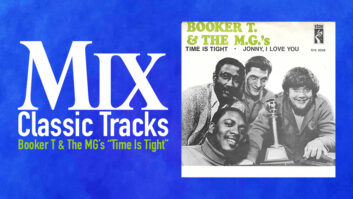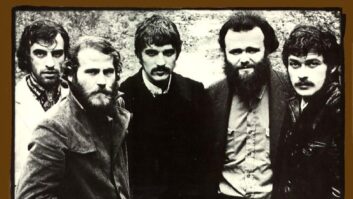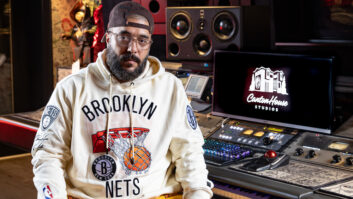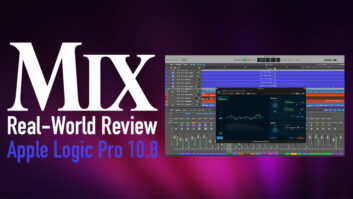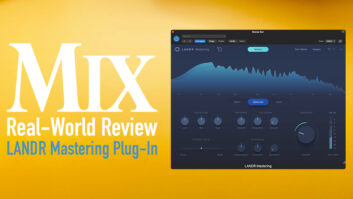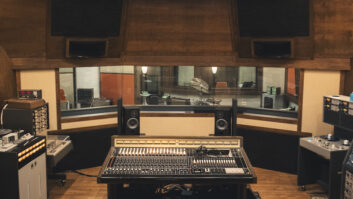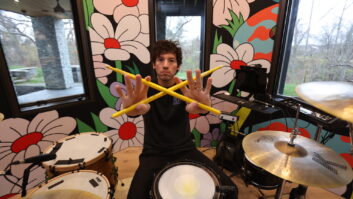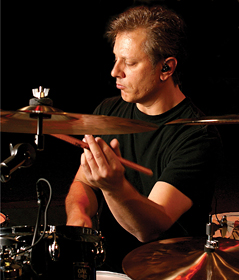
Dave Weckl
Photo: Andy Amyx
Need a great session drum performance? Drummer-owned project studios offering custom drum track services are on the rise. For $125 to $1,000 or more per song (depending on the player), producers, artists, songwriters and composers can submit projects via file-format transfer or in person to pro — and often big-name — drummers who have the chops, equipment, tracking space and engineering savvy to create first-rate acoustic drum tracks.
A top recording/touring pro for 30 years, Dave Weckl (www.daveweckl.com) operates his The Garage studio in a converted two-car garage in Southern California, and has been creating custom drum tracks since the late 1990s. “For almost any other instrument, it’s easy to just call someone to come over, or do a track in a hotel room, on a bus — wherever you can set up a little rig with a DI and/or a mic,” Weckl notes. “Can’t quite do that with a whole drum kit! In my case, most people come to me for my sound, and know they’ll get that, right out of the door.”
Veteran L.A.-based session and touring drummer Russ Miller (www.russmiller.com), works out of his well-appointed R.M.I. Music Productions. “The main limitation with [personal studios] is doing acoustic drums. It’s not only having multiple mics, input channels and gear, but also having a soundproof, good-sounding room that’s big enough,” Miller observes. “We’re talking about rooms that cost a lot of money to put together and are really designed for this. The investment is worth it; it’s paid for itself.
“At Paramount or Record Plant or Capitol, the drums sounded unbelievable [because of] two factors: the console and the room. I can never duplicate Capitol Studio A, but I can access the same mic pre’s and EQs,” Miller continues, adding that he outfitted R.M.I. with vintage API modules he prefers for drums. Miller also learned the ropes of tracking while playing sessions in major studios. “You can’t help but learn things when you do 200 to 300 albums over your career, standing beside some of the best engineers in the world and seeing how they do things.
“I make the same money that I made before,” Miller says of his business. “But now, the cartage and studio isn’t coming out of [clients’] pockets.” He charges his session rate plus a bit for the studio, but it’s far less than it would have been in a major room. The client “saves a fortune and ends up with the same level of recording and playing.”
“It’s generally cheaper for clients to hire me and my room than a major studio space,” Weckl confirms. “I can also record four- or five-piece groups in my place, should live tracking be preferred. There’s no lounge or control room, but we’ll get a happening sound. I can do this quickly and at a high level sonically, because I’ve been doing it for so long.” The Garage is based around a Pro Tools HD3 Accel system and includes Daking mic pre’s and compressors, a Dangerous Music 2-Bus LT analog summing mixer, and Shure and DPA mics.
Myonlinedrummer.com is an example of a newer service that’s thriving in a smaller-sized market. Drummer Craig Sowby, whose Virginia-based Corner House Studio is located about two hours south of Washington, D.C., launched the service in 2007 as a component of his project studio business after relocating from Utah. Former clients in Utah began asking him to contribute his drum tracks remotely. “That got things rolling,” says Sowby, who built his business on word-of-mouth referrals and is receiving new clientele. The online business also feeds the studio. “Some of my studio projects come from myonlinedrummer.com. People sometimes end up coming to the studio or sending me other parts of their project to mix.”
“The studio is a basement studio,” Sowby says. “There’s a main control room, which is an open architecture. I have the drums in the same room, so I can easily access the [Pro Tools] DAW. I’ve done some acoustic treatments on the walls and ceilings to minimize reflections that way, but it works really great because everything’s so accessible. If I need to redo a take, I can almost reach over, hit the space bar and hit go again.”
All the drummers we spoke to embrace the changes that brought about their current businesses. “I love the drum room,” Miller says. “I love that Dave has his, as do Vinnie [Colaiuta] and J.R. [Robinson]. To me it’s just another phase, another part of being flexible in the industry and it’s fun.”
Weckl reflects, “I knew that once people got their heads around the concept, this could be done globally, with ease. The Internet, in a big way, has allowed that to happen. It wasn’t very feasible until interfacing with the computer became possible and stable. I finally feel like I’m living my dream.”
Matt Gallagher is an assistant editor at Mix.
